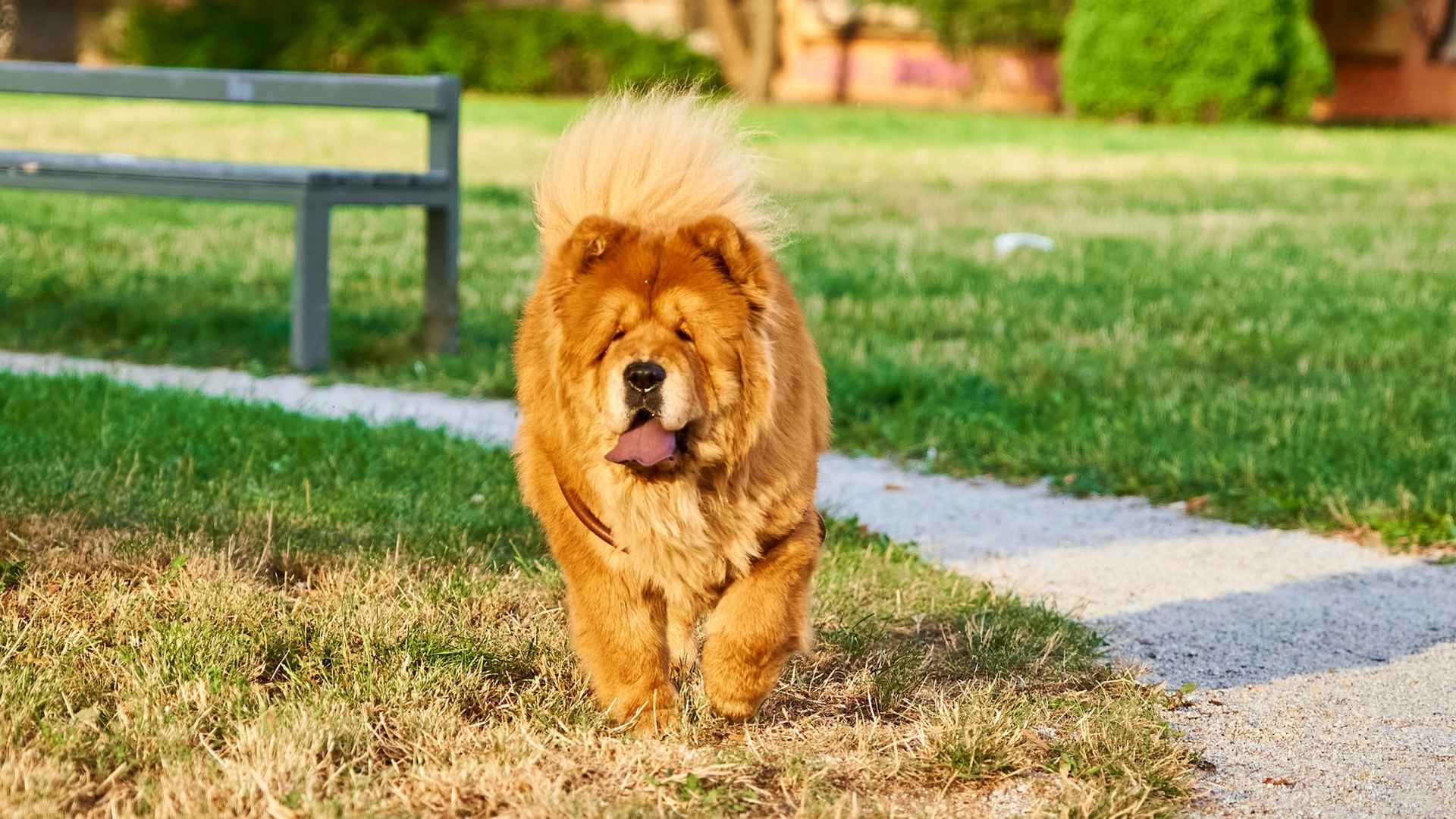Ever walked into a room and instantly felt overwhelmed by chaos? That’s what life can feel like if you bring home a dog with endless, uncontrollable energy.
While every pup has its quirks, some breeds are known for being downright “raving”—hyperactive, noisy, and always demanding attention. For the right person, that kind of energy can be fun and even inspiring. But for many households, it quickly becomes exhausting.
These dogs are often intelligent, high-drive breeds that need hours of daily exercise, mental stimulation, and strong training routines. Without those outlets, they may bark excessively, chew up furniture, or spin in circles like a furry tornado.
Families looking for peace and calm may find themselves frustrated, while first-time dog owners might feel completely unprepared. This doesn’t make these breeds “bad”—far from it. In fact, with the right lifestyle, they can be incredible companions.
But if you’re not ready for a whirlwind, it’s best to know which breeds to avoid. In this guide, we’ll explore the most raving dog breeds that could turn your home upside down—and why they may not be the right fit for everyone.
Most Raving Dog Breeds To Avoid
1. American Pit Bull Terrier
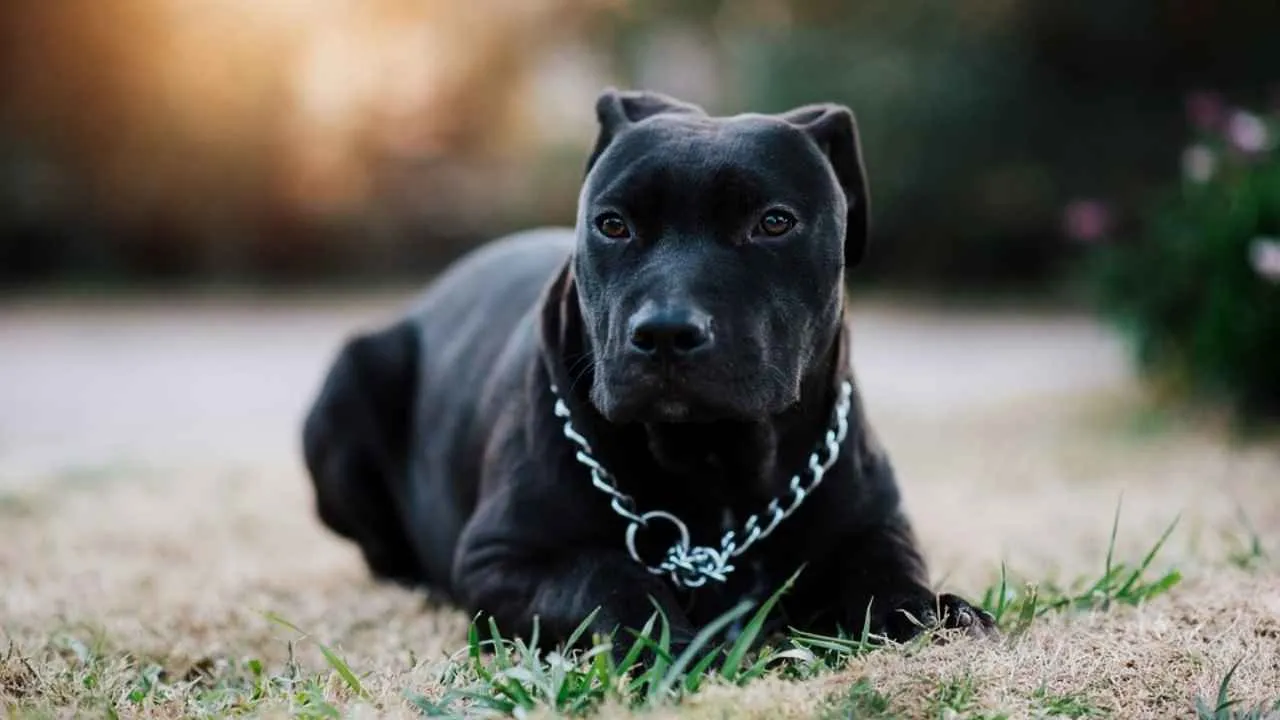
Ah, the American Pit Bull Terrier. Mention the name, and you might get a raised eyebrow or two. With their chiseled muscles and superhero-like stamina, these dogs can look intimidating—but don’t let the ripped physique fool you.
Pit bulls are notorious for their loyalty and devotion to their families, often forming bonds so strong they’d probably follow you to the ends of the Earth… or at least to the mailbox.
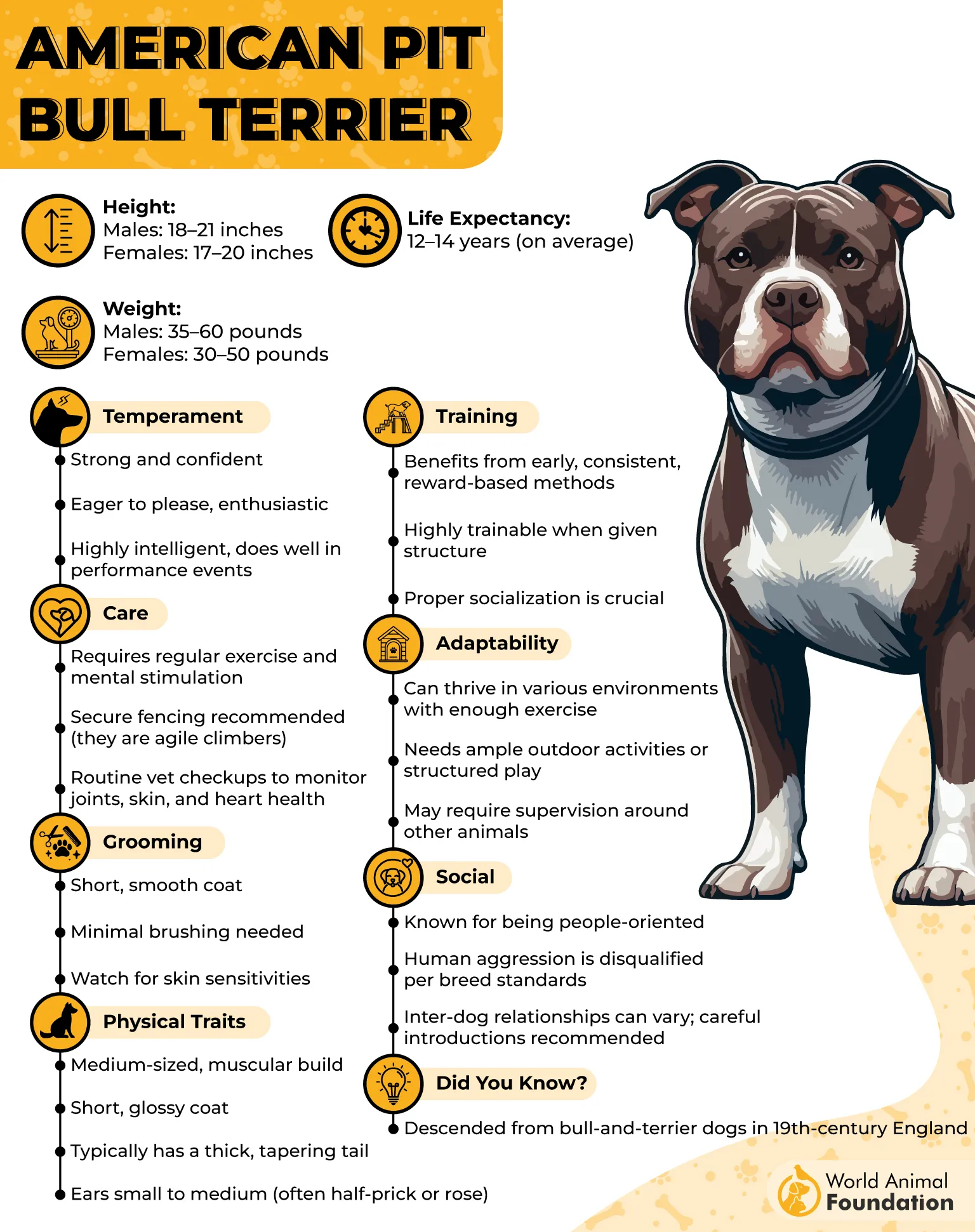
Strength Overload: They’re surprisingly strong for their size; even a playful nudge can send a toddler flying (safely supervised, of course!).
High Energy Levels: Without proper exercise, they can get frustrated, which sometimes manifests as aggressive behavior.
Requires Expert Handling: These pups shine with consistent, patient training, but aren’t the easiest for inexperienced owners.
Loyalty to a Fault: They love fiercely—but sometimes that love comes with intense guarding instincts.
That said, it’s no secret that pit bulls can have a fiery side if not properly socialized. A lack of training or exposure to people and other dogs can turn that superhero energy into… well, chaos.
Think of them like a powerful sports car: thrilling, fast, and fun—but you don’t hand the keys to someone who’s never driven before. With the right home, training, and socialization, they can be gentle family members—but in the wrong hands, their strength and energy can make them a handful.
2. Rottweiler
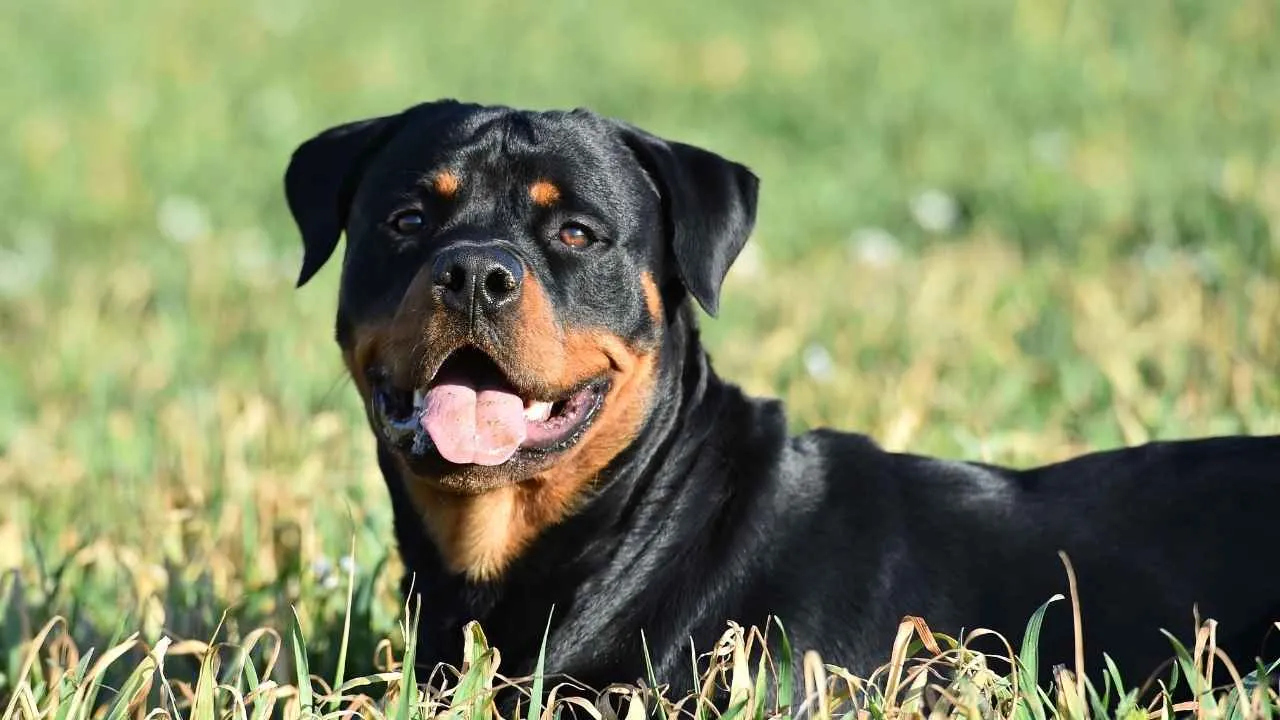
Meet the Rottweiler: part gentle giant, part four-legged security system. With their broad shoulders, intense gaze, and undeniable swagger, Rottweilers are basically the canine version of a bouncer at a fancy nightclub—they take their guarding duties seriously. And that’s where the fun (and sometimes the caution) comes in.
Rottweilers are fiercely protective of their families, which is admirable… until they misread innocent children’s play as a “threat.”
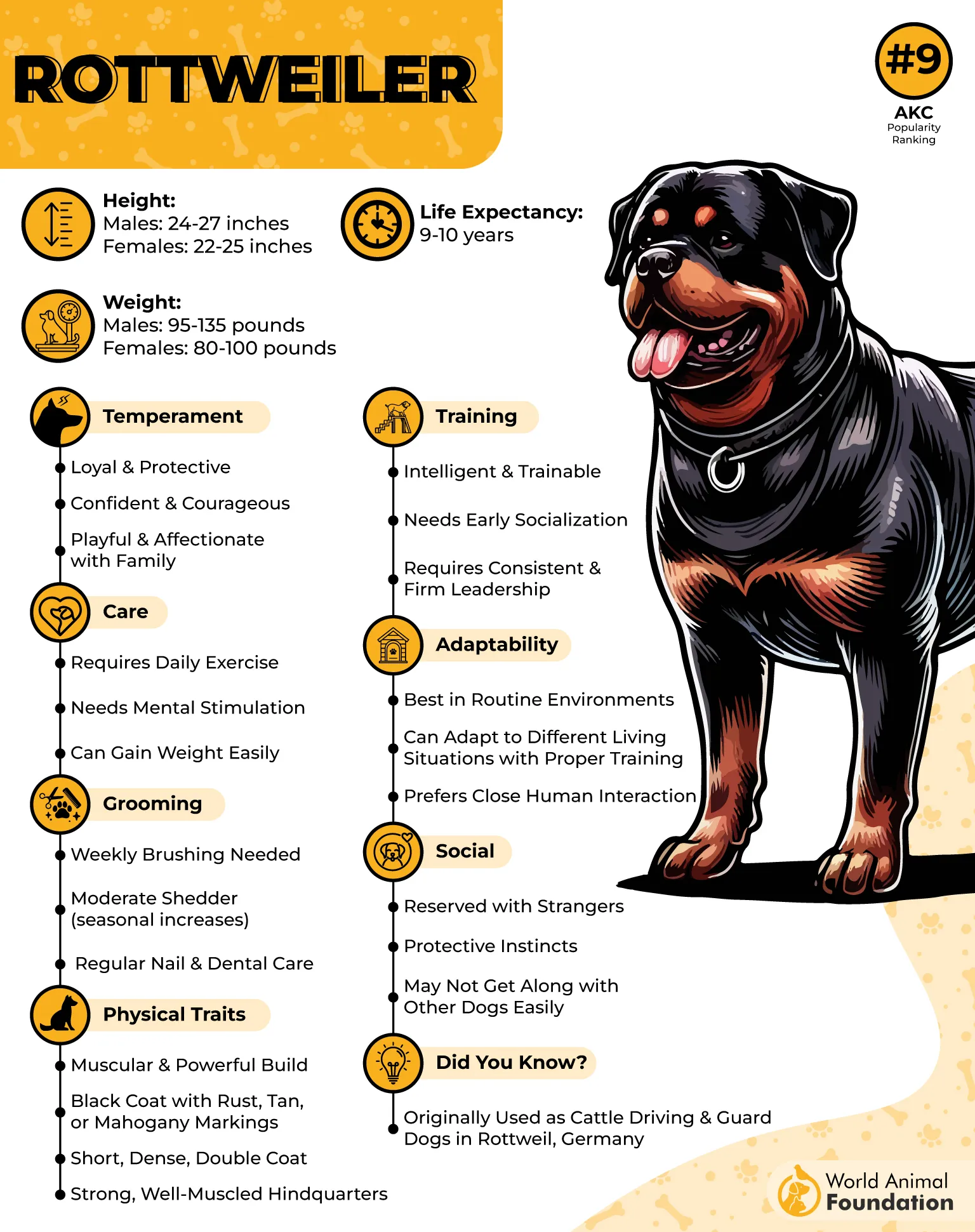
Guardian Instincts: They are natural protectors who may interpret normal play as “suspicious activity.”
Strength & Size: Even a playful nudge can be intense due to their muscular build.
Requires Firm, Experienced Handling: Rottweilers thrive with confident owners who understand boundaries and socialization.
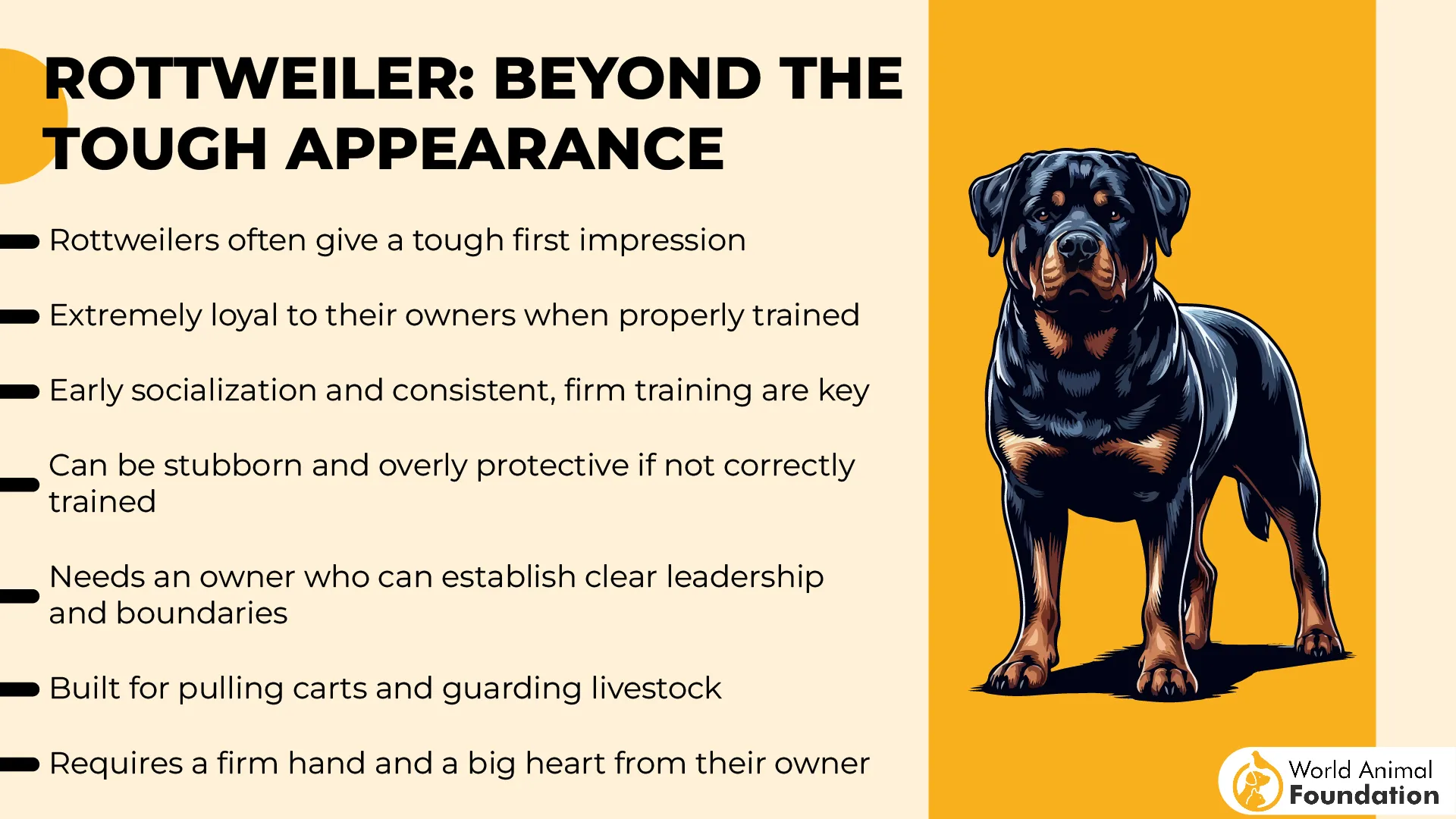
Alert Energy: They are always “on duty,” which can make unpredictable movements from kids tricky to navigate.
That energetic game of tag or a harmless race across the living room might trigger the Rottweiler’s inner security guard, who doesn’t always understand that giggles aren’t danger signals. It’s not that they’re mean; they just have a very strong sense of responsibility—and sometimes take it a little too seriously.
Rottweiler is the family’s loyal protector—impressive, loving, and brave—but they need a patient, experienced owner to help them distinguish a home invasion from a friendly game of hide-and-seek. Think of them as a superhero in need of a training montage before they join the family playtime league.
3. German Shepherd
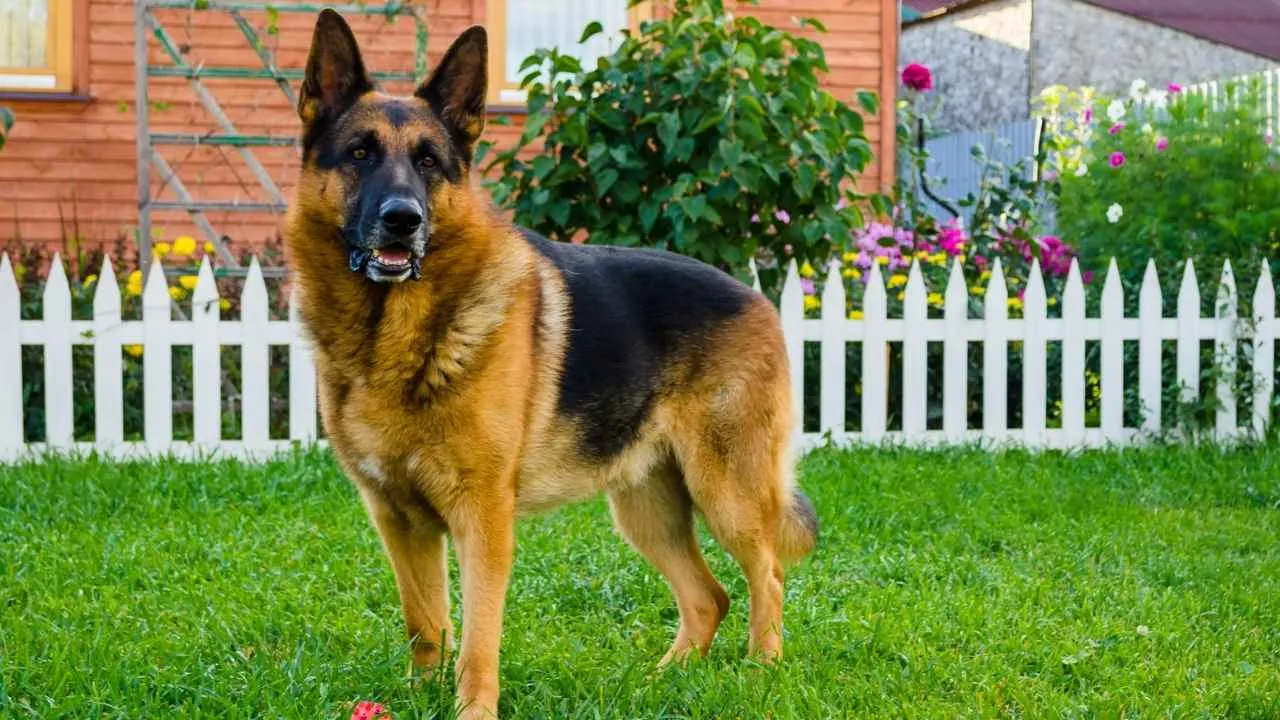
Ah, the German Shepherd: the dog world’s detective, soldier, and sometimes overzealous babysitter rolled into one majestic, pointy-eared package.
With their intelligence, athleticism, and unwavering loyalty, German Shepherds have earned a reputation as one of the most capable working dogs—but that sharp mind can sometimes get a little… over-involved when it comes to children’s play.

German Shepherds are loyal, brave, and incredibly smart—but their dedication to family safety can turn playful chaos into a mini investigation.
High Energy & Strength: They can knock over little ones without intending to.
Protective Instincts: Their vigilance is impressive, but they can misinterpret normal child behavior as potential danger.
Requires Consistent Training: These dogs thrive with structure and socialization; without it, their protective side can get overactive.
Intelligence = Curiosity: Smart pups sometimes decide to “correct” behavior they think is unsafe… even if it’s just a game of tag.
Wikipedia notes that German Shepherds are highly alert and protective by nature. That makes them excellent family guardians—but it also means that a kid running through the yard or squealing with laughter might trigger the Shepherd’s “investigate!” instinct.
They don’t mean any harm, but their enthusiasm for keeping everyone safe can sometimes lead to accidentally rough interactions during playtime. With proper training and supervision, they can be wonderful companions, but they’re definitely a breed where caution and guidance go hand in paw
4. Doberman Pinscher
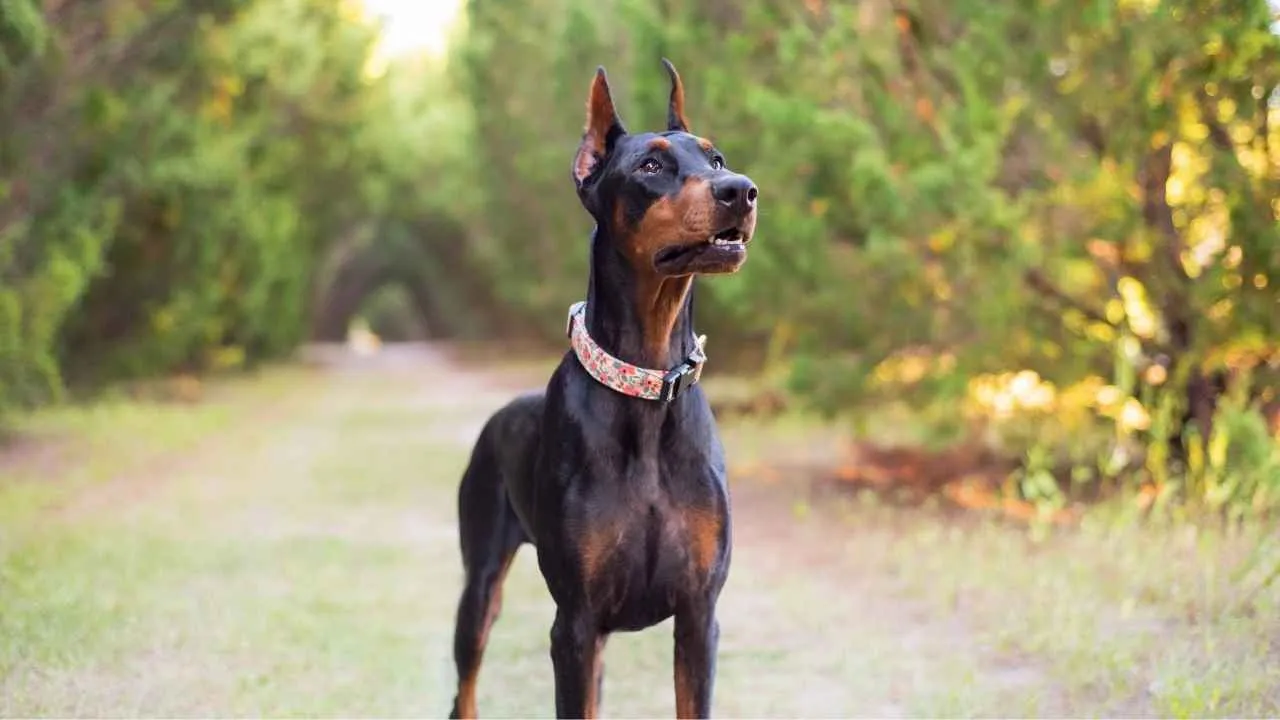
The Doberman Pinscher: sleek, elegant, and looking like they just stepped off a runway… or a superhero comic.
These dogs have a reputation for being intimidating, but peel back the tough exterior and you’ll find a loyal, loving companion who adores their family—including kids. The tricky part? They don’t always realize just how much “oomph” comes with their tall, powerful frame.
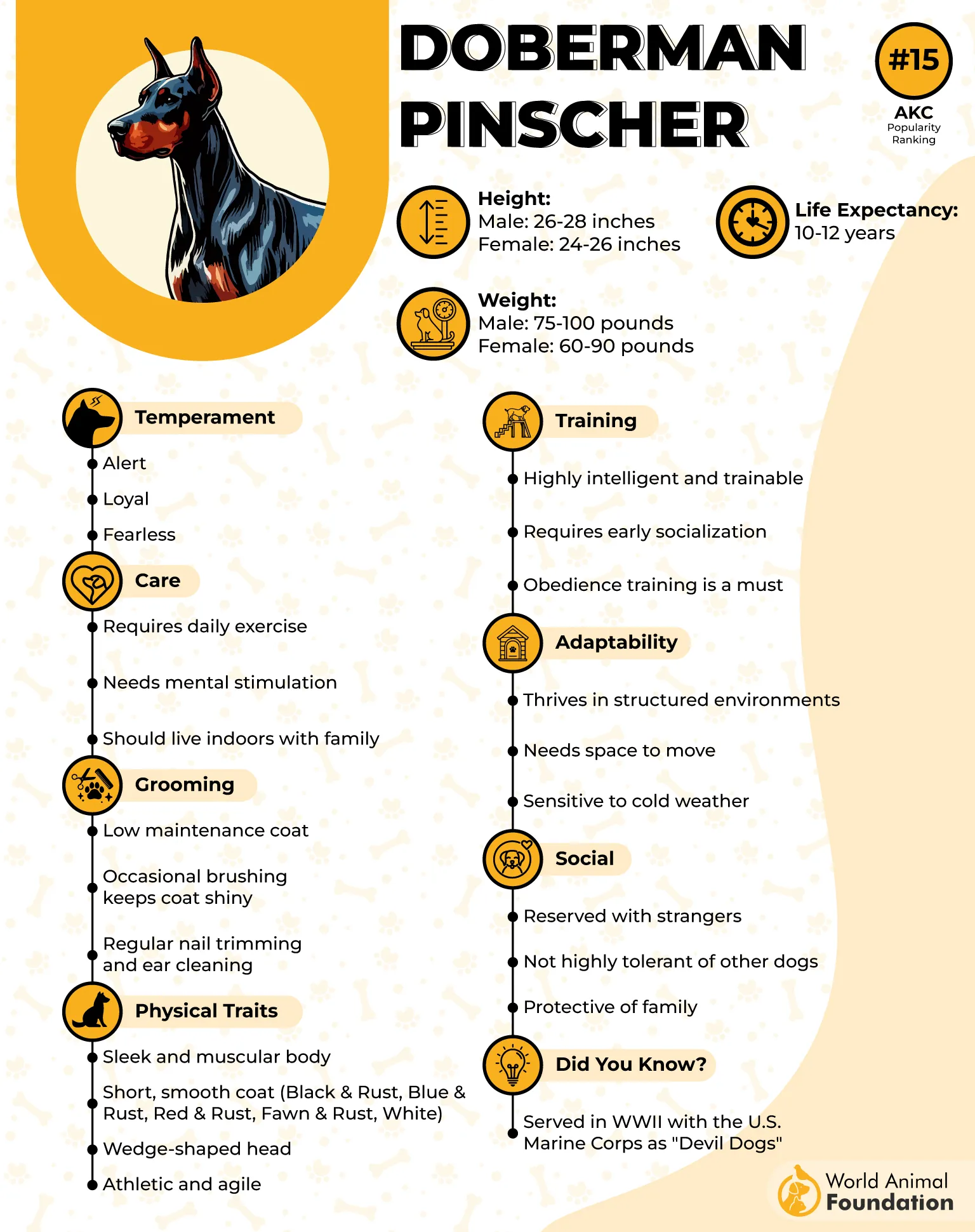
Dobermans are smart, alert, and fiercely protective. That means they might view strangers—or even rambunctious children they don’t know—as potential intruders. And when it comes to playtime, their enthusiasm combined with that impressive strength can lead to accidental tumbles, nudges, or paw-to-the-face mishaps.
Big & Powerful: They can unintentionally knock over or injure a small child during play.
Protective Nature: Naturally wary of strangers, including unfamiliar kids.
Intelligence Needs Guidance: Smart dogs need structure to prevent over-guarding or misreading situations.
Loyal & Loving: With the right training, they shine as affectionate family companions.
Purina says Dobermans quickly gained a reputation as skilled working dogs and were employed by police and military forces as early as World War I. They have also served as therapy and service dogs.
A Doberman is like a stylish superhero on guard duty: loyal, loving, and devoted, but occasionally forgetting that their super strength isn’t always kid-friendly. Supervision, training, and a little patience go a long way in keeping playtime safe and fun.
5. Bullmastiff
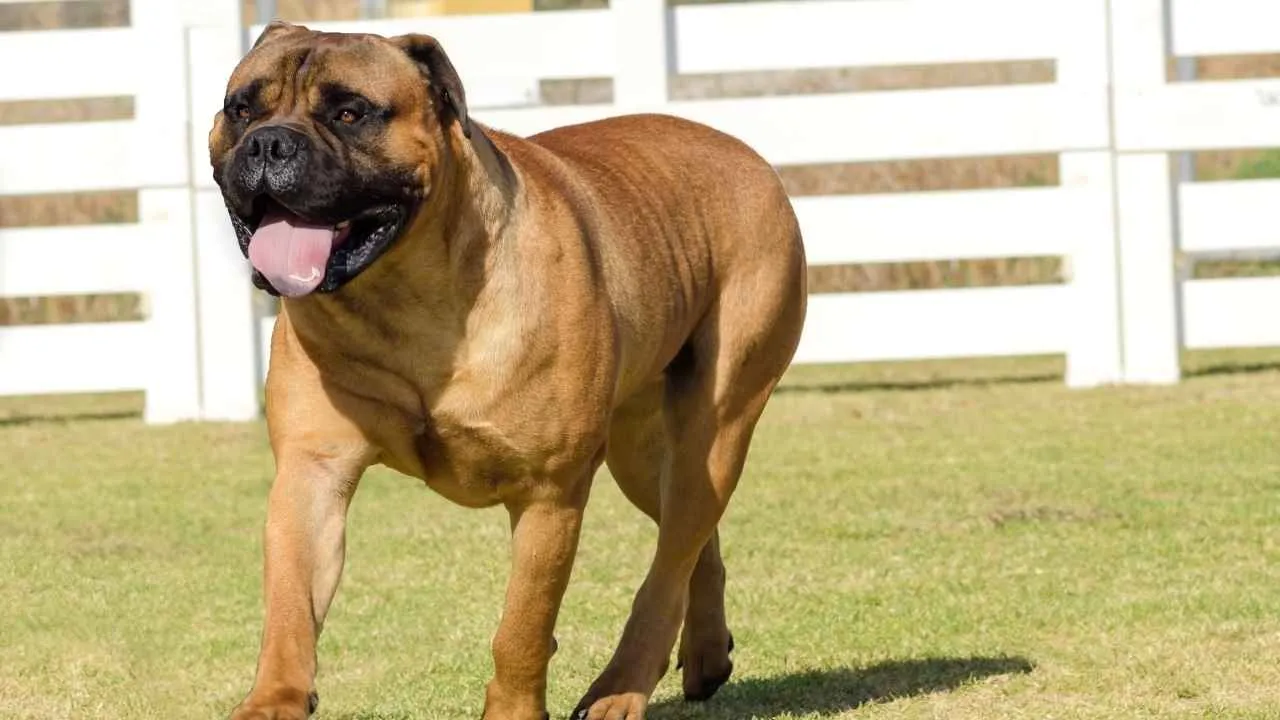
Meet the Bullmastiff: part lovable teddy bear, part four-legged skyscraper.
These massive pups are sweet-tempered, affectionate, and completely devoted to their families—but here’s the catch: they have zero concept of personal space. In their minds, they’re compact lapdogs, which can create… shall we say, interesting situations in a house with tiny, wobbly toddlers.
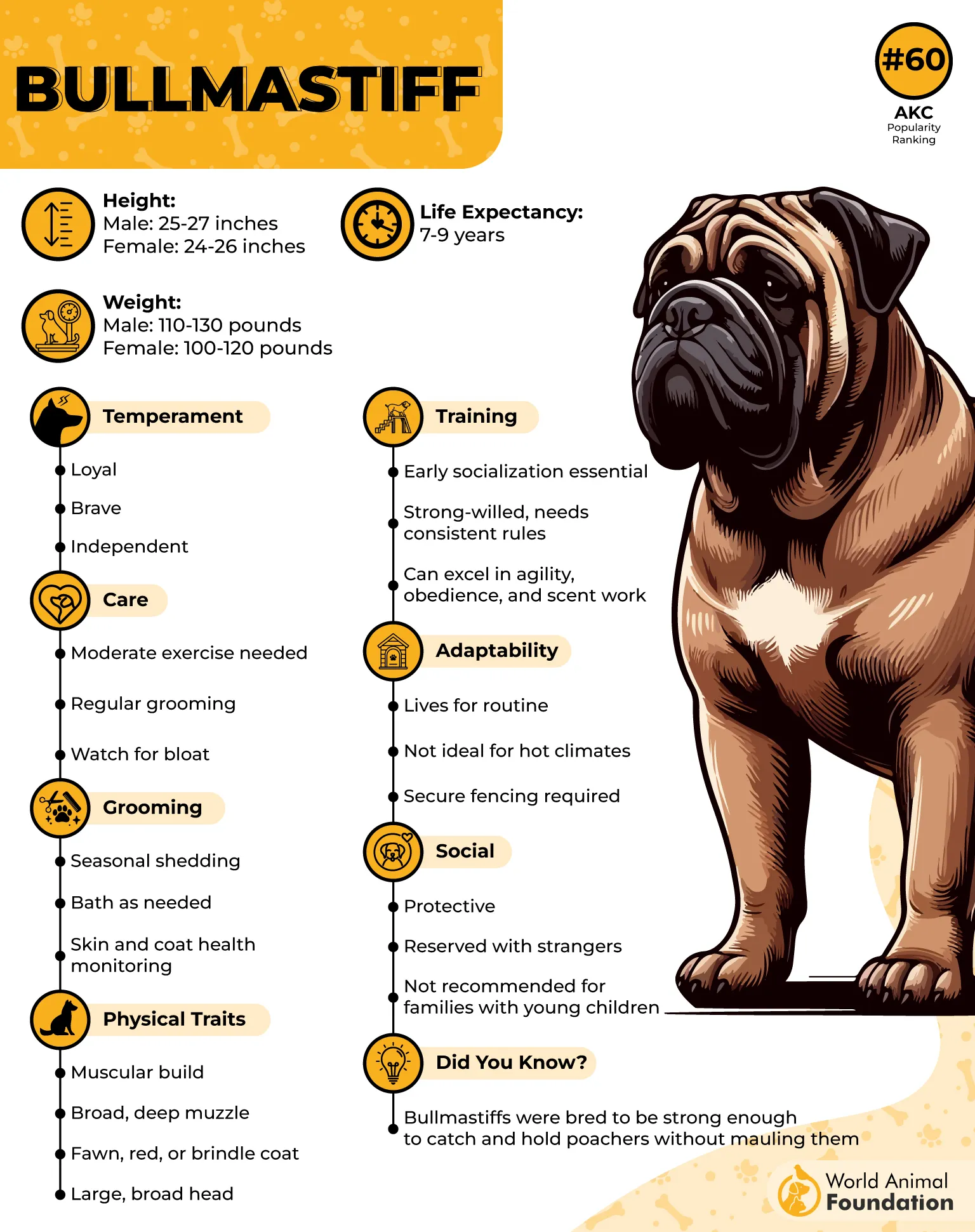
Picture this: a 100-pound Bullmastiff excitedly greets your little one after school, thinking it’s a gentle cuddle session. Meanwhile, your toddler is sent flying three inches back—safely, but definitely surprised. It’s never intentional; Bullmastiffs simply have the heart of a puppy and the body of a tank.
Size Matters: Even gentle nudges can topple a small child.
Good-Natured but Clumsy: Their enthusiasm doesn’t match their awareness of their massive frame.
Best with Older Kids: Waiting until children are sturdier and more coordinated helps prevent accidental bumps and tumbles.
Affectionate Giants: Despite the occasional mishap, they’re loyal, loving, and protective companions.
In short, Bullmastiffs are the gentle giants of the dog world: soft-hearted, loyal, and protective, but better suited for families with older, steady-footed kids. They may think they’re a lapdog, but sometimes it’s your kid who needs to be careful!
6. Chow Chow
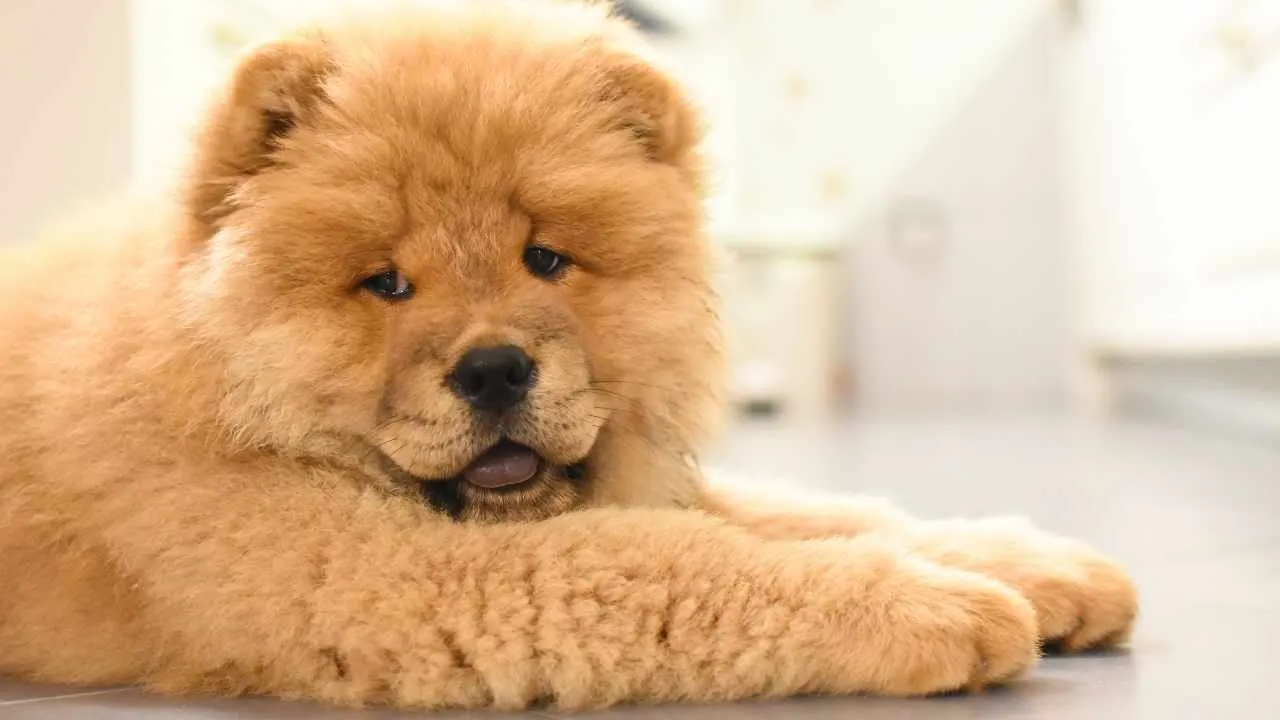
Enter the Chow Chow: a dog that looks like a fluffy teddy bear… until you notice that majestic lion-like mane and those piercing, thoughtful eyes.
Don’t let the adorably squishy appearance fool you—this breed has a strong independent streak and a very clear “I do things my way” attitude. In other words, kids running around screaming or squealing? That’s basically a red flag in the Chow Chow language.
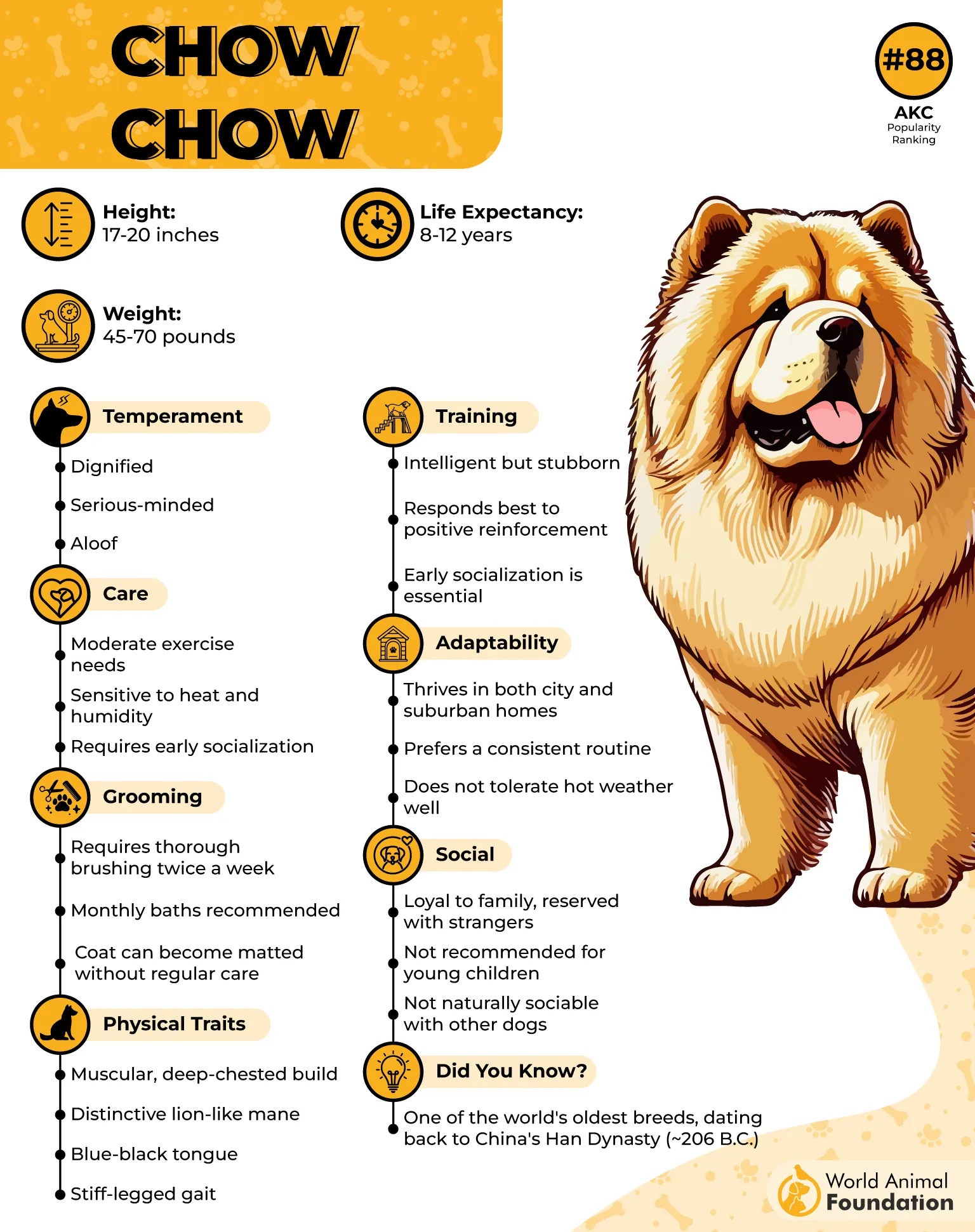
Chows are highly intelligent, loyal, and dignified, but they aren’t exactly the “follow-every-command” type.
Independent & Proud: They march to the beat of their own drum, not the giggles of toddlers.
Sensitive to Noise & Motion: Screaming, running, or sudden movements can trigger defensive behavior.
Requires Expert Training: Not the easiest breed for first-time owners or families without experience.
Loyal But Selective: Once bonded, they’re devoted—but they pick their friends carefully.
They need consistent socialization, firm training, and plenty of repetition to reinforce good behavior. Without it, their protective instincts and aloof nature can turn even innocent child play into a situation that needs careful supervision.
Chow Chow is the regal, fluffy guardian who needs respect, patience, and guidance. Perfect for experienced dog lovers, but not ideal for households where little humans run, shout, and play without a plan. Think of them as the canine version of a strict but fair librarian—majestic, wise, and sometimes wary of chaos.
7. Alaskan Malamute
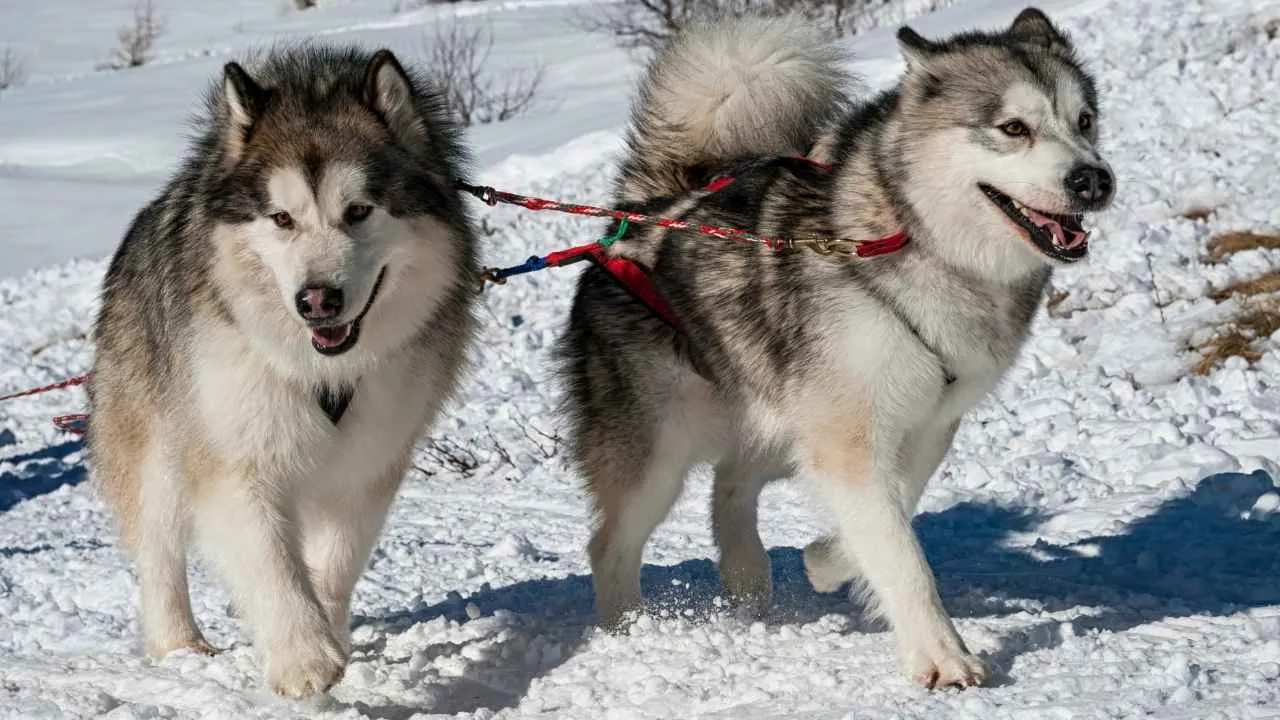
The Alaskan Malamute: a beautiful, fluffy powerhouse that looks like it just stepped out of a winter wonderland. These majestic dogs are full of energy, endurance, and a love of rough-and-tumble play that can quickly become… well, a bit too much for tiny humans.
Think sled dog meets toddler—lots of excitement, lots of pulling, and lots of potential chaos if not carefully supervised.
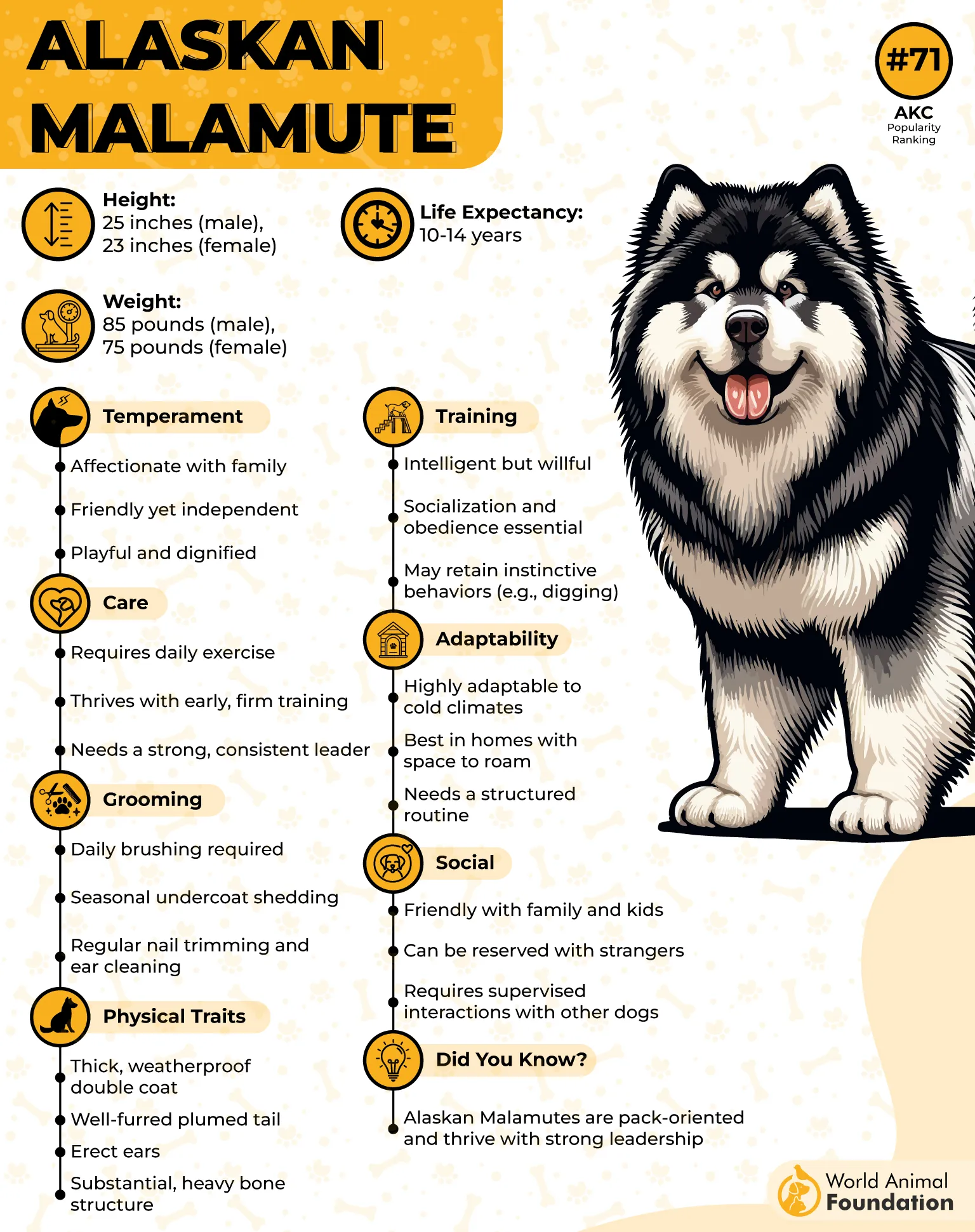
Alaskan Malamute is the ultimate winter warrior with a heart of gold—but they’re better suited to homes with older kids who can match their energy, or adults ready to channel that raw enthusiasm into safe play.
High Energy & Rough Play: They love to play hard, which can unintentionally overwhelm little children.
Strong & Stubborn: Obedience training takes patience and consistency; they don’t do “sit” on command just because you asked nicely.
Not Kid-Leash Friendly: Walking alongside a child can quickly turn into an accidental tug-of-war disaster.
Exercise Needs: Without enough activity, their energy can turn into mischief—or unintentional chaos.
As per Britannica, Malamutes are strong, incredibly stubborn, and incredibly independent. While they thrive on physical activity, their energy can turn a gentle game of fetch into a whirlwind of fur, paws, and sheer enthusiasm.
And forget about letting your kid hold the leash—they’re not exactly “gentle walkers.” These dogs pull, jump, and strain with the force of a small freight train, making them better suited for experienced adults who can handle their strength.
Conclusion
When it comes to dog ownership, choosing the right specific breed matters. While some energetic dogs like the Siberian Husky, Belgian Malinois, or even Labrador Retriever and Golden Retrievers can be wonderful dogs for most owners, they may cause the most trouble for an inexperienced owner without the time for extensive training, proper feeding, and understanding of breed characteristics.
These high-energy pups are far from the worst dog breeds, but they do tend to develop behavioral issues if their needs aren’t met. Unlike small dog “little guys,” some large dogs bred as guardian dogs require more space, structure, and attention to the dog’s temperament.
While many people dream of their first dog being the perfect dog or fur baby, making a mistake with the wrong choice can be tough on both the owner and the pet. Some other breeds are easier to train, more relaxed around cats and other animals, and generally suit most dogs in a household better.
Always work with reputable breeders who offer health guarantees, understand that aggression can surface in stressed pups, and remember that, in the end, these “poor things” need patience, the right food, and a committed pet parent to truly thrive.


